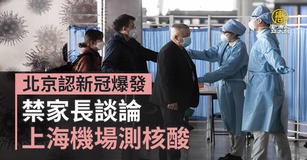【新唐人2011年5月10日訊】海外媒體近日發表文章,說在中國做刑事律師難。本臺記者撥通了幾位大陸刑事律師的電話,發現他們中就有人正承受著可能成為「第二個李莊」的恐嚇。這是這麼回事呢?中國的法律如何對待律師的呢?請看詳細報導。
《紐約時報》5月6號發表社論,提出“中國刑事律師歷來有“三難”之說,就是‘會見當事人難’、‘蒐集證據難’、‘看檢方蒐集的證據難’。現在這一說法還要加上『幹刑事律師難』!”
自從上個月李莊案出現第二季追案,“大陸律師取證不受侵害”的問題再次在法律界引起強烈反響。原北京刑事律師李莊被重慶當局指控對證人眨眼睛來誘導對方做偽證,因而獲獄一年六個月。
目前大陸的刑法第306條規定,“在刑事訴訟中,辯護人、訴訟代理人毀滅、偽造證據、幫助當事人毀滅、偽造證據、威脅、引誘證人違背事實改變證言或者作偽證的,處三年以下有期徒刑或者拘役。”
廣西維權律師楊在新曾為民運人士、法輪功學員、被強拆人士等做法律辯護,多次受到不明身份者的毆打和陷害。
去年底,他擔任一樁刑事案件的辯護律師。據楊在新的介紹,他去調查證人時非常謹慎,全程都錄了像。後來在法庭上,當著公訴人、受害人和法官的面,證人所說的和他調查時是一致的。
但是,幾個月前,中國新年期間,這名證人突然被警方逮捕。不久前,廣西地方警察放出話來,要抓楊在新,辦他個偽證罪。
楊在新:“是啊,現在就發生在我身上啊。可以說我準備挨坐牢的各方面東西都在準備了,比如說坐牢的衣服、拖鞋、牙刷都帶著身上。你必須面對他們這種陷害你呀,你要受這個苦啊。”
楊在新立刻把相關的證據、錄影等交到自己工作的律師事務所,並告訴了多位律師界朋友,萬一自己成為「第二個李莊」,請他們想辦法營救。
楊在新:“真的很恐怖,對法院作出公正的審判都是不利的。因為必須有公訴人舉你的例子,辯護人有他的證據,雙方的證據擺在桌面上,法官就可以根據雙方的證據作一個判斷。你現在把律師動不動就抓起來,特別是維權律師就更麻煩。”
楊在新認為,如果律師不敢取證維護當事人的利益,那麼是全中國人民的利益都受到傷害。
楊在新:“我們認為是殺雞取蛋,為了個別人的利益或者小團體的利益,就把中國律師正義感、對工作的負責任都毀了。毀了律師制度就等於毀了法律制度,也是毀了中國人民的整體利益。”
據不完全統計,自1997年以來,全國已經有數百名律師因所謂的“偽證罪”而遭受牢獄之苦。刑辯律師田文昌也曾感慨道:“在中國現階段做律師是最難的, 比甚麼時侯都難,比哪個國家都難。”
新唐人記者趙心知、蕭宇採訪報導。
Chinese Lawyers Echo NYT Report
Overseas media recently reported on the difficulties
to work as a criminal lawyer in China.
NTD reporters took a few phone interviews
with Chinese criminal lawyers who might be
at a risk of becoming the next Li Zhuang.
How are such Chinese lawyers being treated?
New York Times reported on May 6 the 3 difficulties
a Chinese criminal lawyer has, i.e., meeting litigants,
collecting evidences and checking existing evidences.
Now there is a fourth: being a criminal lawyer.
New issues were raised after the Li Zhuang』s case,
such as lawyers』 immunity in evidence collection.
Former Beijing criminal lawyer Li Zhuang
was convicted by Chongqing authorities
to 18 months imprisonment for
“inducing witnesses to perjure by eye blinking.”
According to China』s Criminal Code, article 306,
in criminal lawsuits, defenders/legal representatives
shall be sentenced up to 3-year in prison
if they are found to destroy, forge evidence
or help a litigant do so, or intimidate
or induce the litigant to change testimony.
Guangxi rights lawyer Yang Zaixin was attacked
for defending rights activists, Falun Gong
practitioners and victims of forced demolition.
He was a defense counsel of a criminal case last year.
He said that he videotaped the whole process
in his research with the witnesses. In the court later,
in front of the prosecutor, the victim and the judge,
the witness said exactly the same as
what he found in the research.
A few months ago the witness was arrested by police,
and his family was questioned. A short while ago,
Guangxi police said that Yang Zaixin was wanted
for providing false evidence.
Yang Zaixin: “It is now happening to me.
I have now prepared the clothes, tooth brushes, etc.
In case I am jailed. I carry them with me. I have
to face such persecution, endure the hardship.”
Yang Zaixin has soon handed in all of his evidences
or videos to his law firm and asked fellow lawyers
to try rescue him in case he got arrested.
Yang Zaixin: “It』s terrifying, it is hard for the court
to carry out an unbiased trial because to be unbiased
both prosecutors and defenders need to present
evidences to the table and the judge can then rule
accordingly. But now lawyers are often arrested,
especially rights lawyers, for gathering evidences.”
Yang Zaixin noted that if lawyers themselves were
afraid of collecting evidences to benefit the litigant,
the interests of all Chinese people would suffer.
Yang: “We believe what the authorities did was
in the interests of some individuals or a small group,
but it has destroyed Chinese lawyers』
sense of justice and responsibility.
Ruining China』s lawyer system equates to
ruining its legal system,
and so are the overall interests of Chinese people.”
Hundreds of lawyers have been imprisoned
in China for the so-called 『perjury』 since 1997.
Criminal lawyer Tian Wenchang said that currently
being a lawyer in China is the hardest thing to do,
harder than at any time in Chinese history,
or in any country in the world.
NTD reporters Zhao Xinzhi and Xiao Yu
看下一集

【禁聞】官員享受特供菜 百姓憂心盤中餐

【禁聞】童養媳復燃 計生官員搶嬰外銷

【禁聞論壇】籌款須知?

【禁聞】美中對話 中共怕國內抗議 望低調

【禁聞】網友炮製「中國特色」有毒食品國宴

【禁聞】曬“公共安全賬”《財經》助《法廣》?

【禁聞】800多名學生被“光明正大”欺騙

【禁聞】許宗衡被判死緩 貪賄額縮水涉內鬥

【禁聞】中國4月通脹略有回降但壓力仍巨

【禁聞】老作家諫言胡錦濤 被軟禁

【禁聞】“選對人” 賈慶林施壓台灣選舉

【禁聞】美方批人權 中方打太極

【禁聞】計生官員“沒收”嬰兒出口

【禁聞】汶川地震三週年 學校重建的真相

【禁聞論壇】誰的收入五年能倍增?

【禁聞】打壓信仰自由 中共到底怕甚麼?






 財經趨勢4.0
財經趨勢4.0 新聞大破解
新聞大破解 新唐人財經新聞
新唐人財經新聞 選戰大透視
選戰大透視 遇見新聞
遇見新聞 老外看中國、老外看台灣
老外看中國、老外看台灣 美麗心台灣
美麗心台灣 田美女奉茶實客
田美女奉茶實客 廚娘香Q秀
廚娘香Q秀 大千世界
大千世界 1000步的繽紛台灣
1000步的繽紛台灣 好樣!Formosa
好樣!Formosa 健康1+1
健康1+1 談古論今話中醫
談古論今話中醫 我的音樂想想
我的音樂想想 胡乃文開講
胡乃文開講 她健康She Health
她健康She Health 天庭小子-小乾坤
天庭小子-小乾坤 總統教育獎
總統教育獎 全國孝行獎
全國孝行獎 健談交流
健談交流 悠遊字在
悠遊字在 傳奇時代
傳奇時代 音樂大賽特別節目
音樂大賽特別節目









